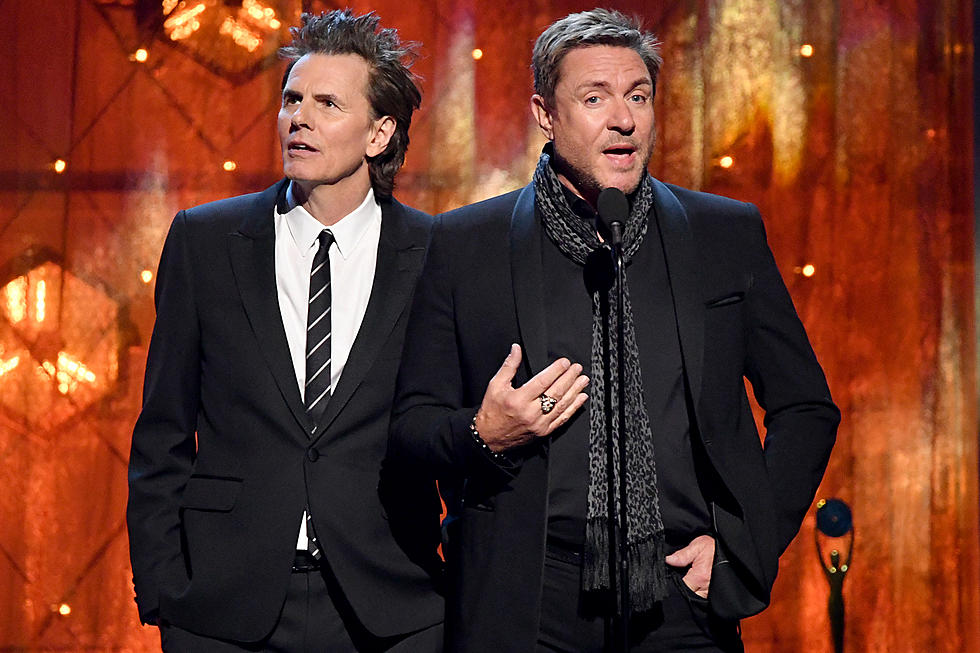
40 Years Ago: Roxy Music Offer a Lush Farewell With ‘Avalon’
Things started getting edgy for Roxy Music just as their music became smooth as glass.
Singer Bryan Ferry started Roxy Music as a prototype new wave group with saxophonist Andy Mackay, keyboardist Brian Eno and early members David O'List and Graham Simpson, combining glammy rock songs and an even glammier look. "There are one or two costumes I wore in the early '70s," Mackay later admitted, "that my older children wouldn't be pleased with me wearing again."
By 1972, Roxy Music had established a sturdy core with drummer Paul Thompson and guitarist Phil Manzanera, and evolution began toward a more sophisticated, jazzier feel. "I think we did tend to straighten out," Ferry told The Boston Globe in 2001. "Possibly too much, when I look back now, but at the time we felt, 'We've done that; let's try doing this.'"
Manzanera was intrigued by the musical shift. "It was coming from an electronic soundscape idea — but the difference is, it's within the context of a pop band," he told Sound & Vision in 2021. "It's very difficult to categorize the styles of the different songs. It didn't have to be funk or blues, or jazz or weird. We were all happy to have this combination of things built around very simple chords."
But not everyone was on board with an approach that one day led to dreamy ballads like "Dance Away." The ever-quirky Eno walked out before 1973's Stranded, followed by Thompson's exit during sessions for 1979's Manifesto. This musical shift reached its zenith on Roxy Music's finale, Avalon. "There's two types of Roxy fan," Thompson complained to Uncut in 2011, "Avalon types and early types."
Watch Roxy Music's Video for 'Avalon'
Unfortunately, replacing idiosyncratic rock with suavely romantic pop likewise hadn't attracted U.S. audiences in the years before Avalon arrived on May 28, 1982.
All of Roxy Music's albums were Top 10 U.K. hits, with 1980's Flesh and Blood clocking in as Roxy Music's second chart-topper. They'd also had 13 Top 40 singles in the U.K., soaring to No. 1 with an emotional cover of John Lennon's "Jealous Guy" in 1981. But their No. 2 U.K. smash "Love Is the Drug" got to only No. 30 in the States, and that's still Roxy Music's best-ever showing on the Billboard Hot 100. They'd never had a Top 20 LP in the U.S.
Avalon didn't present as the project that would break the spell. Ferry began writing the lyrics while staying with his future wife Lucy at Crumlin Lodge in Ireland's Connemara bog. (She's wearing the helmet while looking out from the since-burned lodge in the album's cover image.) This deeply sensual song cycle ultimately emerged, but it was centered on a particularly U.K.-centric legend, as the late King Arthur is ferried off to a mythical island by a group of enchantresses who will await his eventual resurrection.
Ferry was careful to explain that he wasn't revisiting the idyllic Avalon of yore. "It's the Isle of Enchantment — a fantasy place, a very romantic place [but] I'm just talking about me, usually," he told L.A. Weekly in 1982, with a laugh. Nevertheless, its aura permeated everything. "Avalon is very much a mood album, and lyrics appear here and there as sort of washes of color," Ferry added. "They're very vague — in a nice way, though. They color the moods."
Those moods, however, were darkening. As the sessions continued, Avalon began to feel less and less like a band project – while Roxy Music began to feel less and less like a band.
Watch Roxy Music's Video for 'The Main Thing'
The LP's uniformity of musical texture was achieved by building everything off atmospheric grooves recorded live in the studio with producer Rhett Davies. But an increasingly restless Ferry once again felt the songs required more than the core trio could provide. Mackay and Manzanera were ultimately joined by nearly a dozen other musicians, all of whose contributions were carefully managed by Davies to complete the mood.
"I was getting impatient with the rest of the band, getting impatient about what they could or could not play," Ferry told Mojo in 1994. "I was bringing in other musicians. I suddenly got married. I had a child. All these things were contributing factors."
This painstaking process led to some important breakthroughs: For instance, the achingly beautiful title track transitioned from a much faster pace that recalled their sound before 1975's transitional Siren. But the seams of this musical bond were starting to fray.
"There's no master plan with Roxy," Manzanera admitted during an interview with Reuters in 2010. "It's just an anarchic bunch of people getting on with whatever they fancy doing."
Listeners nevertheless responded – in particular, of course, in the U.K., where Avalon was Roxy Music's second-consecutive No. 1 album. "More Than This" and "Avalon" both became Top 15 hits there, too. But Avalon didn't crack the Billboard Top 40, while "More Than This" became the album's highest-charting single at a paltry No. 103.
Watch Roxy Music's Video for 'More Than This'
Roxy Music toured behind Avalon then quietly broke up, apparently tired of pushing the same rock up the same hill – and, if they were being honest, a little tired of one another, too.
"Every band has its flare-ups, and I think we would go through frosty silences from time to time," Ferry told The Boston Globe. "But no, there was never a case of 'musical differences' or any of that. I think at the end of the Avalon tour I just wanted to try different things – and [we] did that."
Manzanera agreed: "Musicians like to do new things," he told Rolling Stone in 2014. "It's unfortunate for the fans, really, because they would like you to play the same old stuff forever and ever."
They'd occasionally reform as a touring unit over the years, memorably playing "More Than This" and "Avalon" during the band's 2019 induction into the Rock & Roll Hall of Fame, but Roxy Music never released another album. In the end, stopping after Avalon was "deliberate, it just felt so perfect," Ferry told Creem in 1993. "It was like, how can I follow that?"
Then something funny happened while Roxy Music was away: Their farewell release kept selling. "Did you know that Avalon finally went platinum in America?" Ferry added. "It took 10 years to get there, but we did. I'm especially proud of that because it says the music has staying power."
Roxy Music and Bryan Ferry Albums Ranked
More From Ultimate Classic Rock









